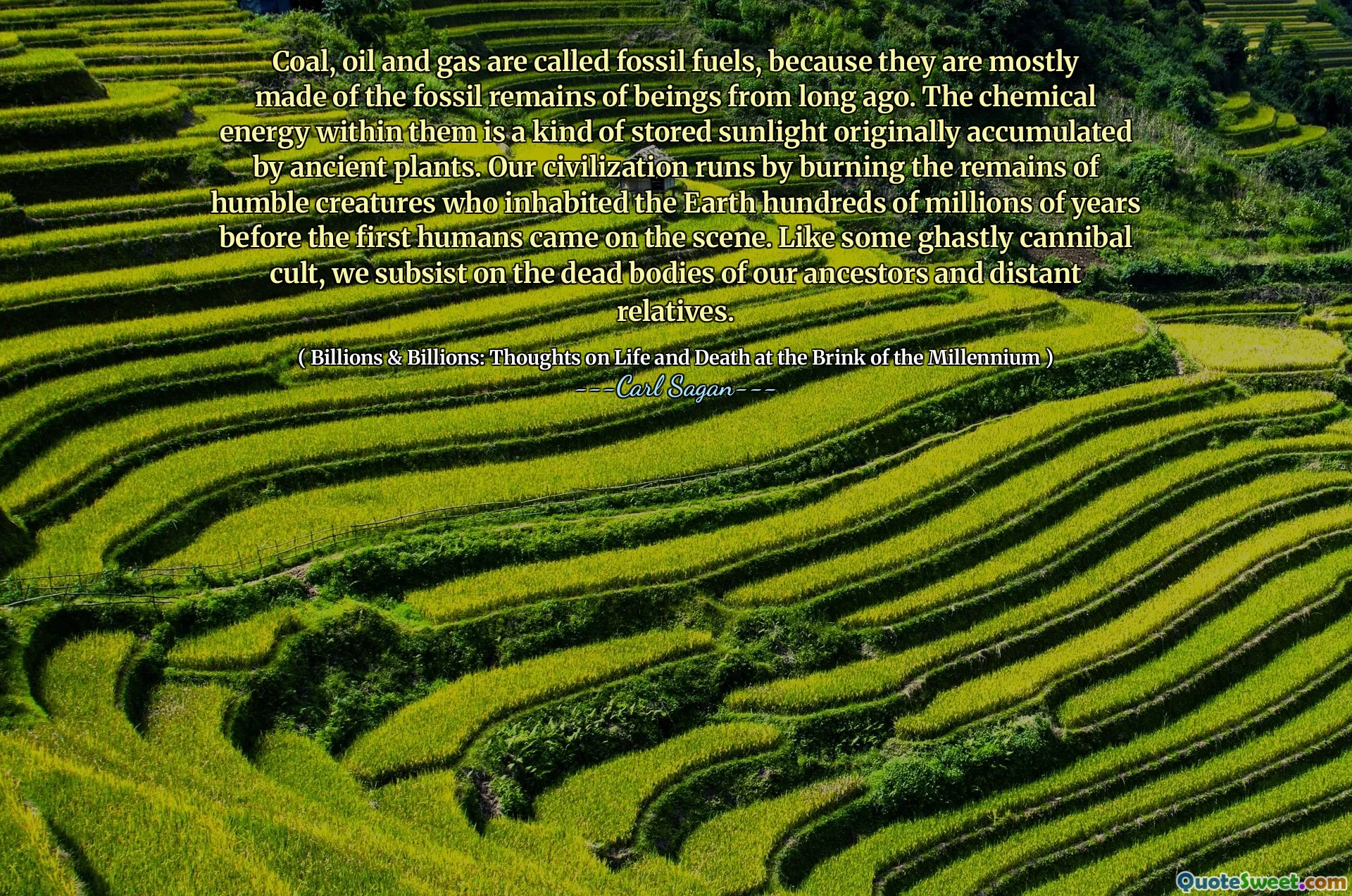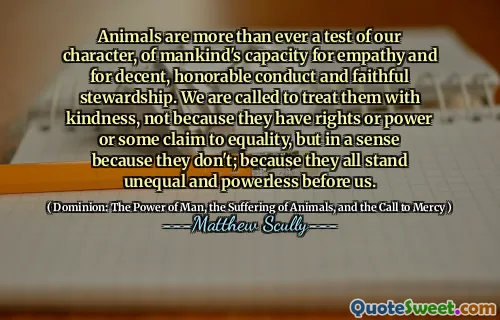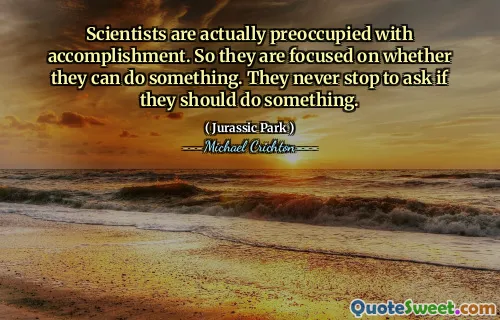
Coal, oil and gas are called fossil fuels, because they are mostly made of the fossil remains of beings from long ago. The chemical energy within them is a kind of stored sunlight originally accumulated by ancient plants. Our civilization runs by burning the remains of humble creatures who inhabited the Earth hundreds of millions of years before the first humans came on the scene. Like some ghastly cannibal cult, we subsist on the dead bodies of our ancestors and distant relatives.
[This quote provocatively confronts us with the unsettling reality of human dependency on fossil fuels, emphasizing that our energy sources are derived from ancient, decayed life forms. It serves as a stark reminder of the environmental and ethical implications of our continued reliance on these energy reserves. The comparison to a "ghastly cannibal cult" powerfully evokes a sense of moral unease, highlighting how we've perhaps often overlooked the origins of the energy powering modern civilization.
Reflecting on this, it prompts deeper questions about the sustainability and morality of our energy consumption patterns. These fossil fuels are remnants of ecosystems long gone, effectively the biological graveyard of countless ancient organisms, including ancestors of current flora and fauna. Our civilization's infrastructure—cars, factories, electricity—depends heavily on this ancient biological archive, which has taken millions of years to form. The analogy to cannibalism underscores the paradox: we are consuming dead lives' remains to sustain ourselves, a process that also causes immense harm through pollution and climate change.
This perspective compels us to reconsider our energy choices and their long-term impacts. Transitioning to renewable energies could be seen as a moral imperative—shifting from consuming the remains of ancient organisms to harnessing energy sources that are sustainable and environmentally benign. It also raises philosophical questions about our relationship with nature and the ethics of exploiting Earth's resources. Recognizing the origin of our energy in ancient remains may evoke a sense of responsibility to act more conscientiously and find alternatives that do not involve the ongoing sacrifice of life-Giving ecosystems.
Ultimately, this quote pushes us to reflect not just on scientific facts but also on moral obligations. It challenges us to view our energy consumption through a lens of ecological justice—considering future generations, the health of our planet, and our place within the Earth's long biological history.
—Billions & Billions: Thoughts on Life and Death at the Brink of the Millennium —Carl Sagan


